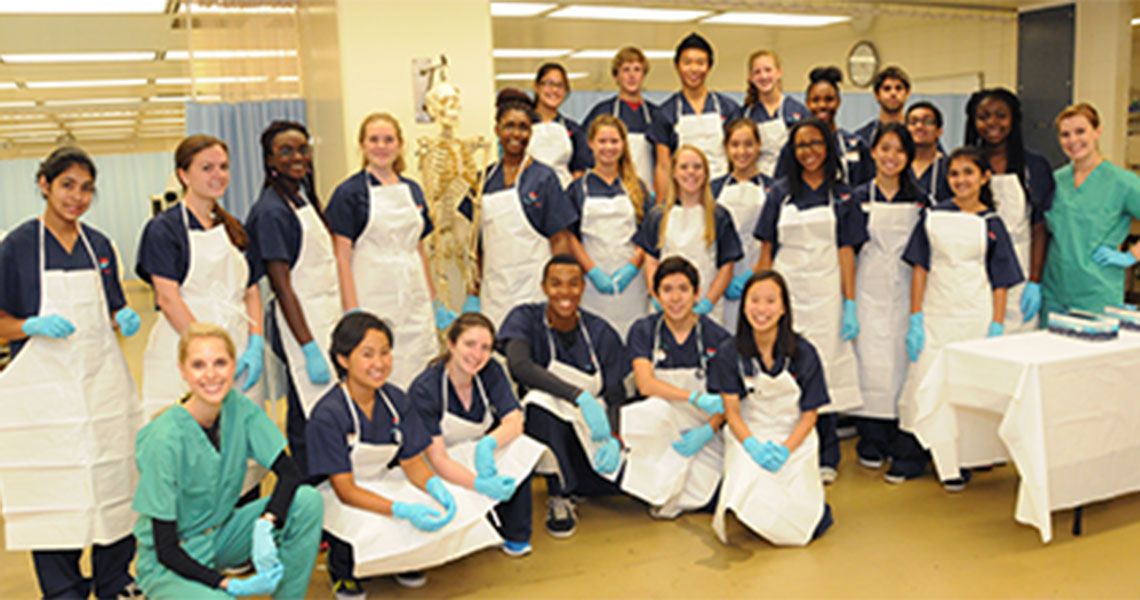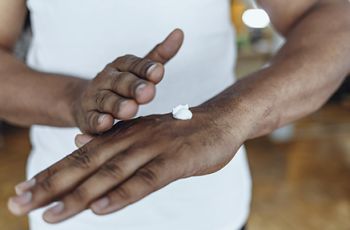“I have never done anything like this before,” said Christina Huynh, a rising senior at Clarksburg High School in Clarksburg, Md., as she began to slice open a pig’s heart. Huynh is one of 25 students who participated in Camp Cardiac, a week-long summer experience for exceptional D.C.-area high school students who are interested in exploring careers in medicine. For the second consecutive year, the George Washington (GW) University School of Medicine and Health Sciences (SMHS) hosted the summer learning experience. For Huynh, who dreams of pursuing a career as a neurologist, dissecting a pig’s heart was both exciting and eye-opening. “Experiences like this are so useful for my future in medicine,” she added.
Founded in 2010 by cardiothoracic surgeon Richard Lee, M.D., Camp Cardiac is run by the non-profit organization Doctor Development. The Chicago-based camps now has sites at medical schools in 10 major metropolitan cities including GW; Thomas Jefferson University in Center City Philadelphia, Pa.; New York University in Midtown Manhattan; and University of Southern California near downtown Los Angeles.
“I think it’s good to inspire these kids at an early age,” said Nikki Duong, camp director and rising second-year medical student at SMHS. “I wish there was something like this when I was considering a career in medicine.”
Putting this camp together is a true labor of love for Duong. “We have been planning since last October, coordinating logistics and making sure everyone gets involved and gets something out of the camp,” he said.
Dissecting a pig heart was also a favorite part of camp for Nicholas Nwanze, a rising senior at School Without Walls in Washington, D.C. “It was really cool to see the different vessels and chambers of the heart.” For Nwanze, who is interested in neurology, Camp Cardiac gave him a better understanding of what it takes to get into medical school, as well as all the different medical specialties. What was the most valuable lesson learned for Nwanze? “How to communicate with a patient, how to treat him or her with curiosity and compassion, even if they are being disruptive.”
The camp is broken into two one-week sessions. Each week, 25 high school students from the Washington D.C. area came to GW to explore what a career in medicine would look like.
This year, the group visited the Clinical Learning and Simulation Skills Center, practiced suturing skills, completed CPR training, and even got the chance to don scrubs and gloves while touring the Gross Anatomy Lab. The students were given the opportunity to handle hearts, lungs, kidneys, and even look inside the human brain. GW medical students were on hand to answer the student’s anatomy questions.
Meghan McCullough is afraid of needles, so drawing blood for the first time meant conquering a major fear for this rising senior at Lake Braddock Secondary School, in Burke, Va. “Seeing the procedure being done and doing it myself made me more comfortable,” she said. McCullough also learned how to read virtual signs and take a patient’s blood pressure. “There are some experiences you just can’t get in a classroom,” she said. For McCullough, the camp made her realize that while medical school may not be for her, a career in medicine is. “After this experience, I’m definitely interested in becoming a nurse practitioner or physician assistant,” she said.
The most rewarding part for Duong is seeing the student’s progress throughout the week. “It makes all the extra hours and hard work worth it when I see these students so excited to learn, eager to ask questions, and really just enjoying this unique experience,” he said.



